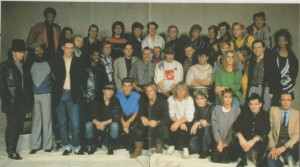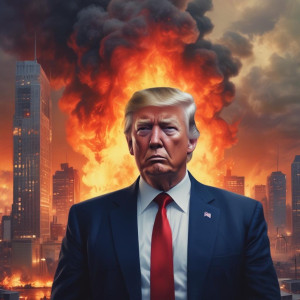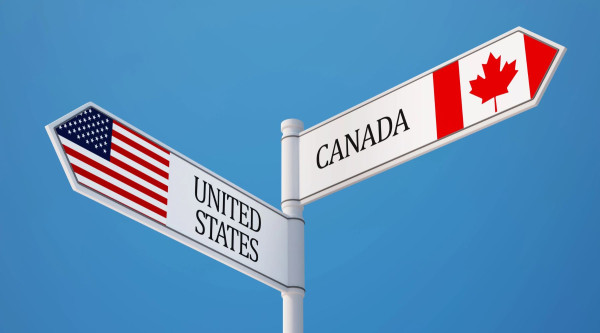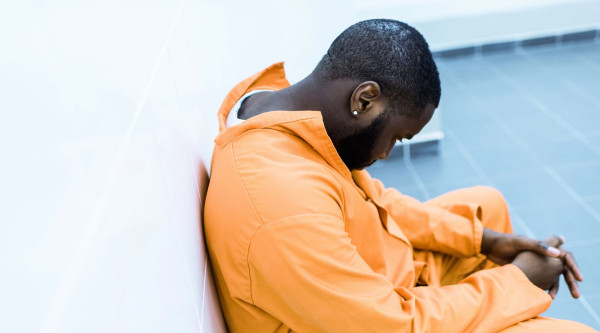Truthfully, he didn’t have much choice.
Leading up to the announcement, the Atlantic, Quebec, and Ontario Liberal caucus’ called for Trudeau to go. But the real hammer blow to his time in office was Chrystia Freeland leaving her post as Finance Minister and Deputy Prime Minister, hours before she was scheduled to deliver the Fall Economic Statement, with a scathing letter.
As one Liberal MP I spoke to put it, Freeland’s move shocked the Party to its core.
“Some people think what she did was great. Some people think it’s terrible because it's impacted our polling numbers,” they said, speaking off the record.
According to an Abacus Data voter intention survey, the Conservatives opened up their biggest lead yet – 25 points – following Freeland’s exit.
“It’s a big deal when you've got the Finance Minister and Deputy Prime Minister, saying ‘I'm gone’ even though she's running again. It sends a very loud message that there's a collapse taking place.”
Freeland and former Bank of Canada governor, Mark Carney, are early favourites to replace Trudeau. They've been considered potential leadership candidates for months and are leading in the polls, despite not formally entering the race. So far only current MP Chandra Arya, and former MP Frank Bayless have signalled they intend to run.
The Liberal MP also mentioned the internal struggle within the Party regarding Trudeau’s management skills (or lack thereof), the Party’s strategy going forward and its overall direction. It seems the party was on the verge of mutiny, with disgruntled MPs openly musing about sitting as Independents, voting against the government or not seeking re-election unless Trudeau resigned.
At least 12 Liberals signalled they won’t run again, including former cabinet ministers Sean Fraser, Carla Qualtrough, Pablo Rodrigeuz, and Marco Mendocino. Two Newfoundland and Labrador MPs joined the exodus days after Trudeau said he’ll step down.
In fairness, the MPs have a variety of reasons they’re leaving like wanting to spend more time with family or increasing health and mental health concerns. But the state of the Party was almost certainly a factor.
The Liberal MP described the situation as “crazy” and “unbelievable” and suspects more names will surface.
“I think there's a whole new group that's going to come forward; they're probably only holding on because the Prime Minister asked them to.”
Conversely, Saint John MP Wayne Long, one of the early adopters of the “Trudeau out” movement, initially said he wouldn’t seek re-election last summer but admitted he reconsidered his position after Trudeau agreed to step down while appearing on a CBC podcast.
Trudeau acknowledged the internal and external tension during his resignation speech, and in a way, it’s poetic that he made his intention-to-resign announcement outside Rideau Cottage, the same place he addressed Canada directly on a near-daily basis during the peak of COVID-19. Because the pandemic was the beginning of the end of Trudeau’s stint as leader.
And for someone who’s spent his entire life in politics and grew up in the prime-minister-sized-shadow of his famously popular father, Pierre, I’m shocked Trudeau and his team didn’t see the signs or act quicker.
During the 2021 election campaign, someone hurled gravel at Trudeau as he entered his campaign bus. A few months later, when the “Freedom Convoy” rolled into Ottawa, the most poignant and enduring slogan of the occupation was “Fuck Trudeau.” In addition to reversing all vaccine-mandate-related restrictions, one of the goals of the Convoy organizers was to remove the Trudeau government.
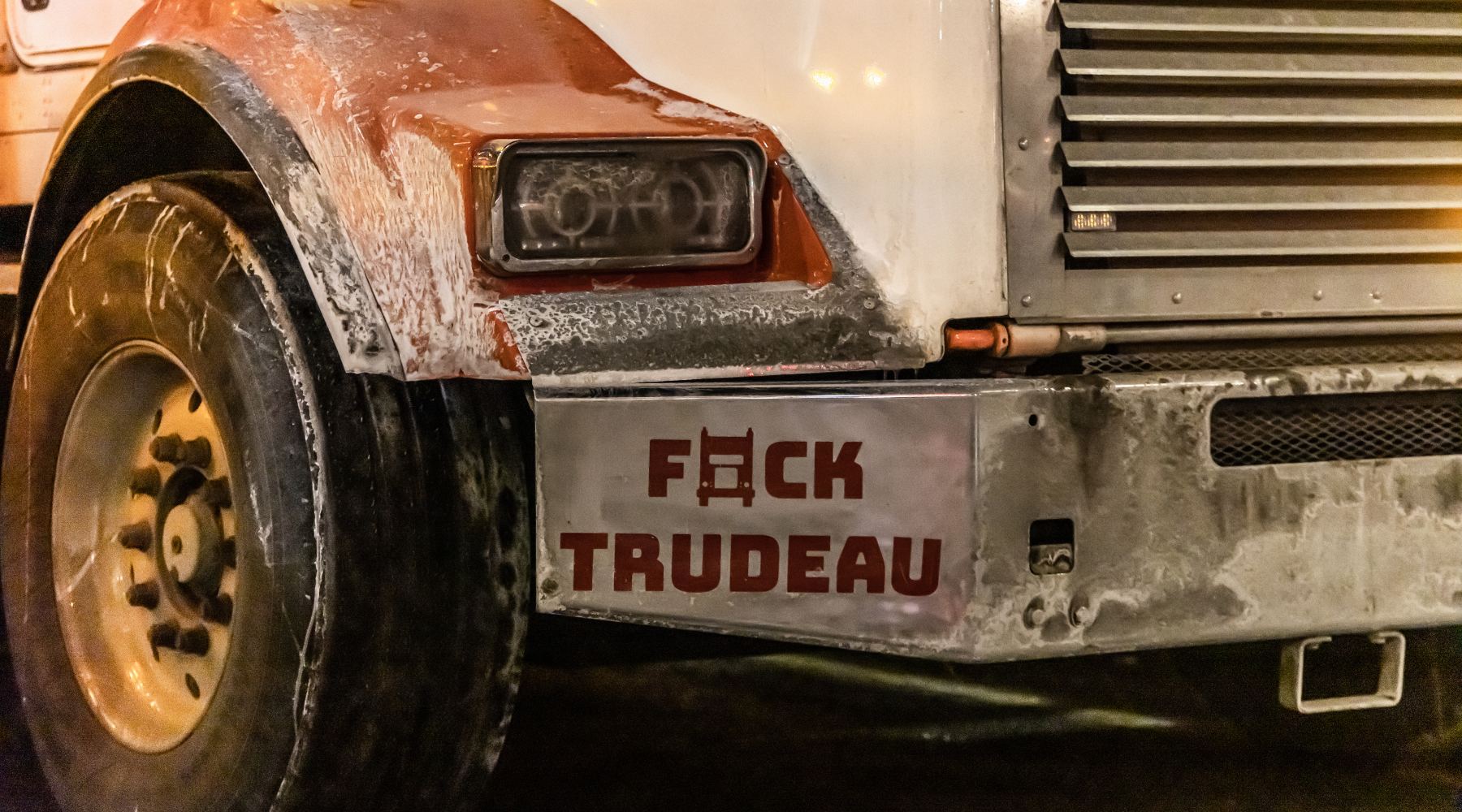 2021 Trucker Convoy. Photo: depositphotos.com
2021 Trucker Convoy. Photo: depositphotos.com
While people, and certainly politicians, were advised to avoid the Convoy. Conservative Party leader Pierre Poilievre embraced them. Where law enforcement saw unlawful activity and security risks, Poilievre saw opportunity.
{https://x.com/stephen_taylor/status/1876287550333263985}
Trudeau’s condemnation of anyone who was in or supported the convoy as a "small fringe minority of people" with "unacceptable views" who didn’t believe in science was as big a blunder as Hillary Clinton labelling Donald Trump supporters “a basket of deplorables” in 2016.
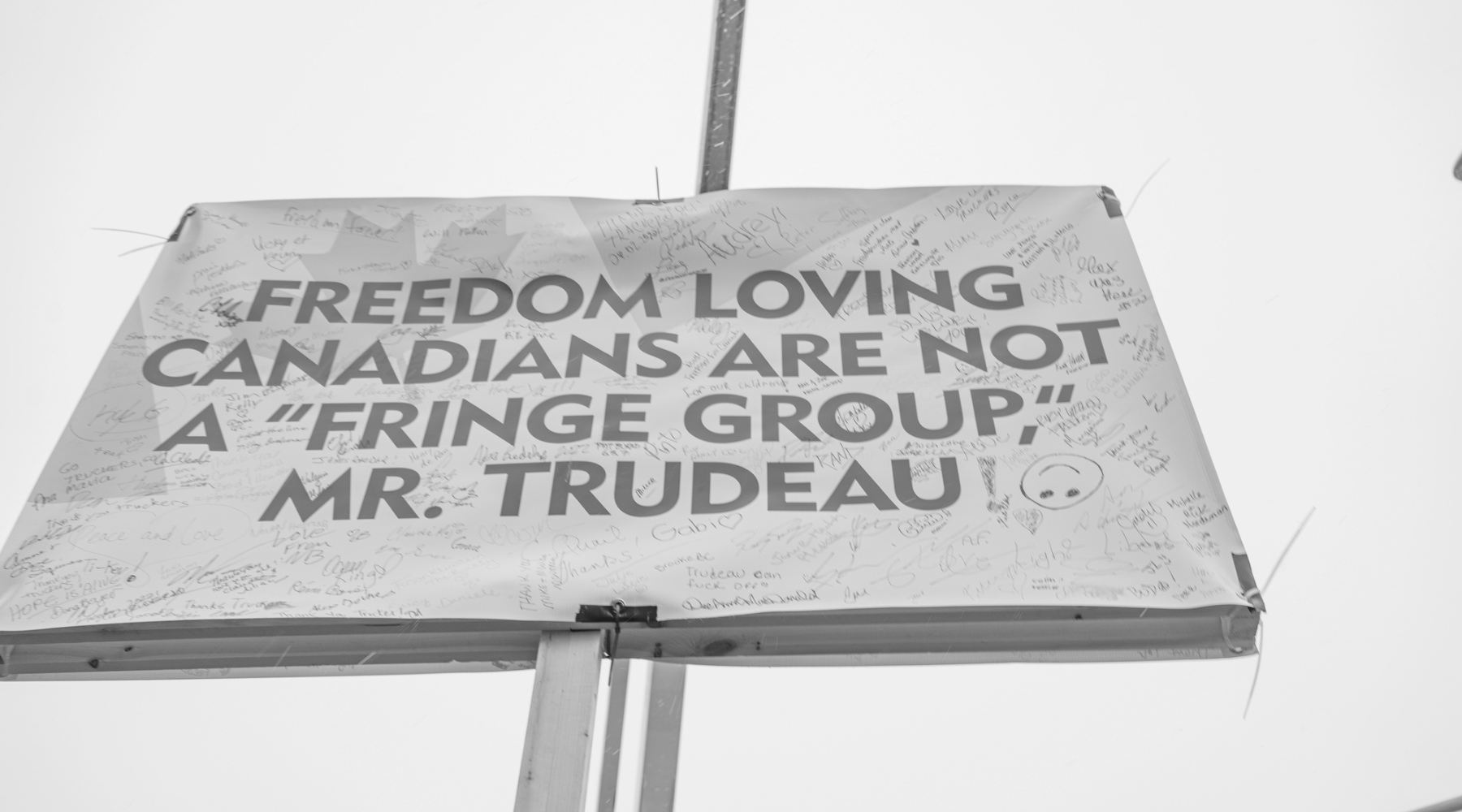 Photo: depositphotos.com
Photo: depositphotos.com
Trudeau was dismissive of Canadians' anger. Meanwhile, Poilievre has very effectively harnessed it, and he weaponizes it at every opportunity. He blames everything from the housing shortage to violent clashes between Sikhs and Hindus in Brampton on Trudeau. As the Leader of the Opposition, that’s his job. And rightly or wrongly, many Canadians are mad at many issues and they blame the prime minister too.
Liberal MPs called on the party to come up with a strategy to define Poilievre and counter his message with attacks of their own more than two years ago but nothing substantive materialized. The guy literally has lie in his name, how hard could it have been?
A lot of people have stopped listening to the Liberals and nothing they’ve said or done has boosted their popularity in over 18 months.
“We've been outspent, we've been out-maneuvered, there's been some missteps with policy. It’s not necessarily just what we're hearing from constituents but a combination of that with low polling numbers, inaction from the leadership around him, and their inability to to capture the mood of the nation.”
Trudeau says he hopes stepping aside and proroguing Parliament will help “turn the temperature down” and allow it to “reset.” During prorogation, all parliamentary activity that doesn’t involve new laws or spending comes to a halt including existing bills, committee work, studies, and investigations going back to the start of the current sitting in 2021.
The legislative agenda will reset when the House of Commons reconvenes in March unless Opposition parties pass a motion to revive the old activity. However, it feels like there’s a snowball’s chance in hell that that happens because the opposition parties are expected to vote non-confidence as soon as possible to force an election.
Key pieces of legislation like the Online Harms Act and proposed changes to the capital gains tax could be abandoned. The funding rollout for the Canada Dental Care Plan and the Pharmacare Act, which were products of the Liberal-NDP Supply and Confidence Agreement, could be disrupted.
The president of the Black Class Action Secretariat, Nicholas Marcus Thompson, called the situation “a moment of profound concern.”
Prorogation means that the $312 million in funding for the Black Justice Strategy, meant to address anti-Black racism and systemic discrimination in the criminal justice system, is in limbo. The proposed modernization of the Employment Equity Act, intended to tackle workplace discrimination, appears in jeopardy.
“These setbacks represent significant missed opportunities to advance equity and justice for Black communities and other marginalized groups in Canada,” Thompson said in a social media post.
Ideologically, some people would welcome progressive policies like those being repealed but the current political climate feels particularly personal.
When answering reporters' questions after the announcement, Trudeau said:
"Anyone who's been watching politics closely over the past months will know that Parliament has been entirely seized by obstruction, by filibustering and a total lack of productivity."
On the one hand, it helps Poilievre’s “everything is broken and it’s Trudeau’s fault” narrative if he and his party can contribute to the government’s ineffectiveness, but he seems to particularly enjoy poking at the prime minister. Perhaps too much.
One of the knocks against Poilievre is that he’s too committed to his attack-dog style and scoring political points or seems more interested in taking Trudeau down than leading himself. His aggressive approach is often reflected by others in the party.
I know there are always elements of theatre in politics, especially during Question Period, but there’s a real sense of contempt between Poilievre and Trudeau and it feels like it’s spread to their parties, their supporters, and has influenced the political climate generally.
What was more surprising than NDP leader Jagmeet Singh confronting Poilievre in Parliament with a “I'm right here, bro'” was that Poilievre and Trudeau haven’t had a similar incident.
I read recently that Americans feel more anger towards people with differing political views than they feel love for people who they have beliefs in common with. I’m confident the same could be said about us.
Speaker Greg Fergus’s continued pleas for civility in the House, the increased security politicians require, the number of people who are exiting politics early (and who are so turned off, they don’t enter in the first place) because of increased vitriol and more polarization among people are all connected and seem to be working together to make the situation worse.
Now, I’m not blaming Trudeau for us reaching this place but he’s undeniably a part of it. When Trudeau burst on to the federal Liberal scene – more than a decade ago – he was the exciting, young, “change” candidate. His “sunny ways” approach and emphasis on progressive ideals was meant to stand in contrast to the rise of populism we saw in the form of Trump’s first election and Brexit.
But Trudeau will seemingly have a similar political fate as New Zealand’s Jacinda Ardern. They’re both young, attractive politicians who championed progressive ideals like Indigenous rights, fighting climate change and more immigration but struggled to deal with the economic challenges COVID-19 exacerbated like the cost of living and housing crises or inflation.
It would be too pessimistic to say prescriptively that dark times are ahead when it comes to the aforementioned areas but there are reasons for real existential worry when it comes to all of them.
Goodbye sunny ways. The future is cloudy and unpredictable at best.

 By
By 




